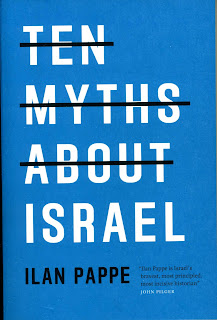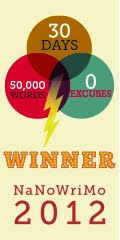L to R: Robin Yassin-Kassab; Mona Kareem; Ali Bader, Ghazi Gheblawi
'Writing Against the Grain' was the title of the opening session of the Shubbak Festival weekend min-festival at The British Library. The weekend - 'Two days of inspirational Arab literature' - was organised with Daniel Löwe, who is in charge of the British Library's Arabic collections, and the translator Alice Guthrie, literary programmer for Shubbak. Guthrie said it had taken nearly a year to put the weekend programme together "with the wonderful help of Daniel Lowe and the British Library team."
'Writing Against the Grain' was a great start to the two days. Chaired by Syrian-British writer and activist Robin Yassin-Kassab the panel comprised Kuwaiti-born poet, writer, blogger and activist Mona Kareem Iraqi novelist and poet Ali Bader علي بدر and Libyan writer, blogger, activist and medical doctor Ghazi Gheblawi.
Ali Bader read in Arabic and then in English translation from his new novel Liars Get Everything. The excerpt's entertaining slant on a serious subject features an asylum seeker and smuggler, under constant threat of deportation, who fabricates sayings from Marx, keeping himself in disguise through using fake documents and false identities He goes under the name Amin although his real name is George - known to his friends as the Teacher. When he wants to assert the truth of anything, he says "Marx said that, I swear on my sister's honour Marx said it." (excerpt from the novel in English translation by Farah Sharaf here ).
Robin said he has so far read only one of Ali's 21 books, the novel Papa Sartre (AUC Press 2009, translated into English by Aida Bamia). "I strongly recommend it - I hadn't laughed out loud like that for a long time. It's a brilliant satire of one kind of false intellectual, somebody who goes from Iraq to Paris and sees Jean- Paul Sartre in the distance and then returns home and becomes Baghdad's chief existentialist. And he pursues Nausea by drinking a lot. It's a brilliant, very funny but also quite serious, novel."
Asked by Robin about the use of irony in his 21 books, Ali described how he uses it "as a political instrument in order to destroy the authorities," who - as in the case of Saddam Hussein - take themselves seriously. He added "I believe in culture, and I believe that we can change society by irony." Irony can also "violate the sacred things" such as religion and authority. From another angle, in his novels he constantly explores "the difficult relationship between the Arab world and the West."
Mona Kareem read in Arabic and English her witty and thoughtful poem "My body is my vehicle'. Robin asked her about a line in another of her poems, "I want to walk in a demonstration against myself." She said it is from her poem "I'm not myself". She had "noticed that I was always asked to define myself in a certain way and I would always answer in negation - I'm not this and I'm not that and not this and not that - and then I arrive at this conclusion of, well I should just like demonstrate against myself. I guess like the characters in Ali's novels, I recreate myself, I fabricate myself, because I find much liberation in this." She thinks one could see "the phantom" of the line "I want to walk in a demonstration against myself" all over the poetry collection it came from. "I'm always haunted by my body and that's why my next collection is about this, how can I explore my body, as a woman - but not necessarily in a sexualised way, the only way in which our bodies are dealt with - and on another level the immobility of this body, that no matter how light you are, you feel heavy."
Robin said this reminded him "of what Ali said in our conversation just outside, that he thinks the political focus of campaigning in the Arab world at the moment should just be on protection of the body - stop torture and stop execution. And if we can get the idea of the sacredness of the body, protecting the human body, everything else will come from that, and what you've just said fits back to that. Robin also discussed with Mona her poem "Kumari", her response to killings by maids in the Gulf of members of the families employing them, which had unleashed much racist discourse against Ethiopians and other nationalities. "There's much more work to do to debunk a whole culture that allows for this master versus servant relation to exist," Mona said. Her poem begins:
Dear Kumari,
I, of course, do not know if Kumari was really your name
It became a custom in the Gulf to change the name of the servant upon arrival,
The mama says to you, “Your name is Maryam/Fatima/Kumari/Chandra,”
Even before she gives you your cotton apron,
The same apron that the previous Kumari used...
Ghazi Gheblawi had replaced at short notice the Libyan playwright and novelist Mansour Bushnaf who had been unable to travel from Libya "because of some visa confusion". Gheblawi paid tribute to Bushnaf, telling the audience of his life -including years in prison from the 1970s with other Libyan writers held as political prisoners on trumped up charges - and of his work, and in particular the novel Chewing Gum ( Chewing Gum - Mansour Bushnaf ). The novel was published in Mona Zaki 's English translation by Darf Publishers in 2014. Gheblawi worked closely with Bushnaf on the English edition.
Bushnaf wrote many plays for the theatre, before and after his imprisonment. Chewing Gum was published in Arabic in Cairo but was confiscated inside Libya. "We got a copy and with the help of Ghassan M Fergiani who's the publisher of Darf Publishers we translated it into English.It's an interesting novel that talks about a guy who stands for 10 years as a statue waiting for his lover to come by and find him. There are lots of metaphors and anecdotes in it and it talks about the history and background of the country. It is very satirical, and very journalistic."
Robin Yassin-Kassab said he had recently read Chewing Gum: a remarkable book that he had much enjoyed, "funny and yet serious, and with really striking images."
Regarding Gheblawi's own writing, he read in Arabic, and the Iraqi-Ukrainian actress Dina Mousawi, read in English translation, an extract from his short story "A Rosy Dream". Robin also referred to Ghazi's short story "The Cave" and its similarity to Chewing Gum in that "you have this prose which is 'all that' - there are elements of post-modernism, and it's self-referential and it's inter-textual and so on, but it's more kind of meaningful and serious than a lot of post-modern experiments in the West." He asked "where does this come from? Because it looks like something that's got a huge tradition behind it."
Ghazi said: "It could be that there's a tradition behind it. I think that the short story specifically in Libya, short fiction, has a long tradition and a lot of writers, whether they were journalists or intellectuals in general, or even poets, dabbled a little in short fiction. There are according to my estimate about 150 short story writers in Libya who have published short story fiction, whether in one collection or several collections.
"The novelists that came later - there were two or three of them that worked on novels in the beginning, now there are more - the new generation who are tackling lots of problems in the country after 2011, and even before, are more or less abandoning the tradition of starting as poets and moving on to short fiction and then maybe moving on to becoming novelists and working in journalism at the same time. They go straight to writing short fiction but it has more attachment to reality and more attachment to the problems that are going on in society."
He said that Mansour Bushnaf once wrote a critique of what short fiction in Libya is, calling it "the prose of the city", in the sense that "because Libya was a rural society before independence in 1951 and then later on before the emergence of oil wealth in the 1960s 80 percent of people were living in small villages and towns. That was why fiction wasn't available at the time but then that social movement of migration to the city produced what he called ''the prose of the city'. So fiction is a product of urbanisation, and that's why you have that coming in the 1960s, 70s and so on."
With reference to the title of the session, Ghazi said that in Libya the act of writing itself is "against the grain". He has recently been involved in producing an anthology of 25 young Libyan writers. "They all wrote these amazing poems, and prose and short fiction after 2011, and all of them are young up-and- coming writers. Most of what is written is something that not only goes against the political atmosphere but also the whole narrative of a society.
"There are a lot of myths that are built in a society... When the writers confront these myths - through an absurdist novel like Bushnaf's Chewing Gum, or in other ways - actually they're writing a new narrative, they're trying to regain control of the narrative that has been taken from the writers or from the society itself. So in itself writing - in this moment of history - is writing against the grain."
report from London by Susannah Tarbush









